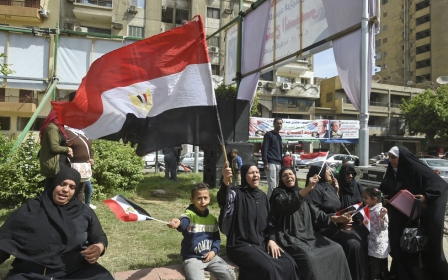Egypt court rejects activist Fathy's appeal, sends her back to jail

An Egyptian appeals court on Sunday sent a rights activist to prison for two years over charges including "spreading false news", her lawyer and a court official said.
The court also fined Amal Fathy, who was released three days previously in another case, 10,000 Egyptian pounds ($560), AFP said. Fathy was handed the sentence in September but she appealed.
Her lawyer Ramadan Mohamed said on Sunday her appeal had been rejected and that she would now serve jail time. Fathy is also accused of publishing offensive content, Mohamed said.
The Egyptian authorities have been criticised for launching a crackdown on opposition voices in the country and jailing scores of human rights activists, journalists, NGO workers and others.
The 34-year-old was arrested in May over a video she posted online, criticising sexual harassment in Egypt and alleging that guards at a bank had sexually harassed her.
She had been conditionally released on Thursday after being detained in another case with charges including "membership of a terrorist group".
The allegations of "belonging to a banned group" are related to Fathy’s membership of the April 6 Youth Movement, which played a significant role in organising the 2011 uprisings against then-Egyptian President Hosni Mubarak. The movement was banned by Egypt's court of urgent matters in April 2014.
After the court ordered Fathy's release on probation earlier this month, Najia Bounaim, the deputy regional director for the Middle East and North Africa at Amnesty International, called on the Egyptian authorities to drop all the charges against her.
A United Nations report in 2013 said that 99.3 percent of women in Egypt have experienced some form of sexual harassment.
Despite several anti-harassment movements, a report by Human Rights Watch five years later still found that “sexual harassment and violence against women remained endemic” in the country.
A poll conducted by the Thomson Reuters Foundation also reported in 2017 that Cairo was one of the most dangerous cities in the world for women.
New MEE newsletter: Jerusalem Dispatch
Sign up to get the latest insights and analysis on Israel-Palestine, alongside Turkey Unpacked and other MEE newsletters
Middle East Eye delivers independent and unrivalled coverage and analysis of the Middle East, North Africa and beyond. To learn more about republishing this content and the associated fees, please fill out this form. More about MEE can be found here.



